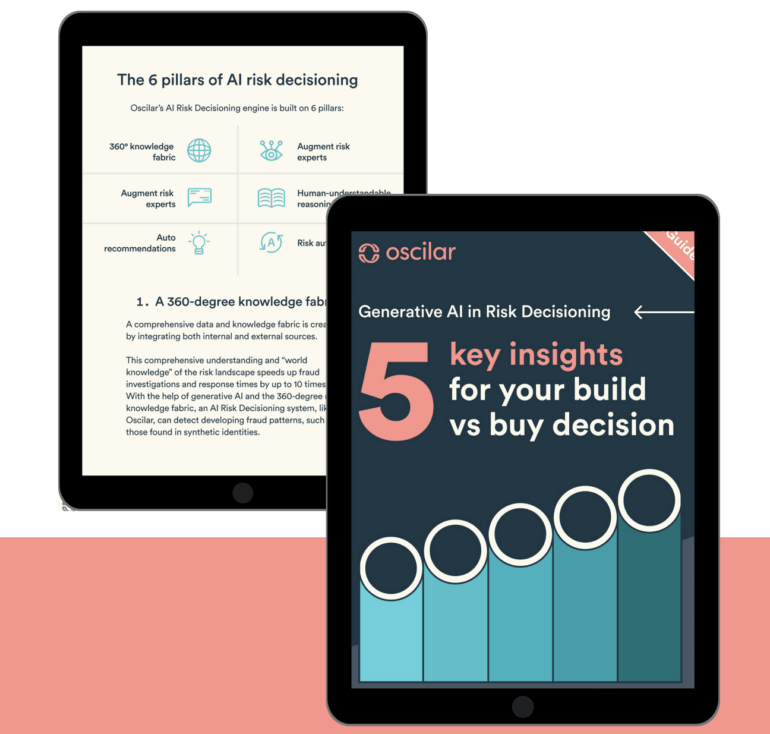Risk teams today have a challenging job. New threats continue to emerge, often more complex and sophisticated than previous efforts. At the same time, fintechs are expected to grow by providing a seamless customer experience. Investment in an integrated platform for managing fraud, credit, and compliance risks is no longer optional —it’s imperative.
In a new white paper from Oscilar, you can learn the five critical considerations to weigh before building a risk decisioning platform. The paper also provides a roadmap for evaluating third-party solutions.
Here are some key takeaways from the white paper:
- Adaptability: One of the critical considerations risk teams need to consider is the adaptability of the platform to new and evolving threats. The white paper emphasizes that having a flexible system is essential, not just a luxury, suggesting that the ability to respond to changes in the risk landscape is crucial for the effectiveness of the platform.
- Total Cost of Ownership: Another consideration is the total cost of ownership (TCO) of the platform. The white paper points out that TCO includes not only the initial investment but also ongoing costs such as maintenance and adaptability. Additionally, it suggests that the return on investment (ROI) delivered by the platform should be scrutinized as part of the TCO.
- Data Integration: The white paper also mentions the creation of a comprehensive data and knowledge fabric, which implies the integration of both internal and external data sources. This suggests that the platform should be capable of consolidating various types of data to inform risk decisioning processes effectively.
The white paper also takes us through the evolution of risk decisioning platforms starting with version 0.0 with a simple rules engine through to 3.0 with Generative AI-powered risk engines.
The selection and implementation of a risk decisioning platform requires careful consideration. Risk teams should take into account the adaptability to threats, the total cost of ownership, and the integration of diverse data sources when looking to create a robust risk management system.
Download the 28-page white paper here.


